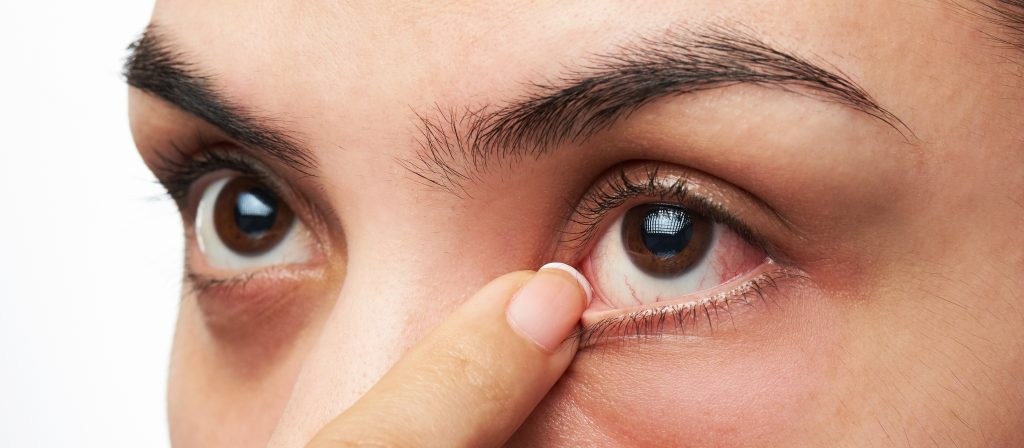Lasik surgery is a common procedure that many people choose to have each year. However, as with any type of surgery, there are risks involved. In this blog post, we will discuss some of the most common Lasik complications and how to avoid them. By knowing what to look for, you can be better prepared if something does go wrong after your surgery.
Contents
What Is Lasik?
 Lasik is a refractive surgery that is performed to correct vision problems such as myopia, hyperopia, and astigmatism. The surgery involves using a laser to reshape the cornea. It can also be used to treat presbyopia, which is a condition that causes farsightedness.
Lasik is a refractive surgery that is performed to correct vision problems such as myopia, hyperopia, and astigmatism. The surgery involves using a laser to reshape the cornea. It can also be used to treat presbyopia, which is a condition that causes farsightedness.
Several different types of lasers can be used for Lasik surgery, but the two most common are excimer and femtosecond lasers. These lasers work by breaking down the bonds that hold the cornea together. This allows the surgeon to reshape the cornea and correct vision problems.
The process is usually performed on an outpatient basis, which means that the patient does not have to stay overnight in the hospital. The surgery usually takes less than 30 minutes to complete.
Lasik is considered to be a safe and effective way to correct vision problems. However, there are some risks and complications associated with the surgery. Let’s further explore these complications and how you can avoid them.
Common Lasik Complications
Several common Lasik complications can occur. These include:
Dry eyes
It is common to experience dry eyes after Lasik surgery. This is usually temporary and can be treated with artificial tears or other eye drops. The reason might be that the Lasik surgeon removed too much tissue from your cornea. This can happen if you have thin corneas or large pupils.
Night vision problems
Some people may experience night vision problems after Lasik surgery. This is usually because the surgeon cut through more of the eye’s protective layer than necessary. This can cause light to scatter in the eye and make it difficult to see at night. To avoid this complication, be sure to ask your surgeon how many layers they will be cutting through before the surgery.
Visual aberrations
It is described as the inability to see fine details. After Lasik, some patients may experience visual aberrations, which can include halos, starbursts, and double vision. These usually go away after a few months, but in some cases may last indefinitely. In fact, visual difficulty can persist for more than two years in some people.
Halos and glares
 This is probably the most common complication following Lasik surgery. It is caused by the halo of light that surrounds objects when you look at them. This can be a nuisance, especially when you are driving at night. There are a few things you can do to avoid this problem. But the first thing is to make sure that you have good night vision before you have the surgery.
This is probably the most common complication following Lasik surgery. It is caused by the halo of light that surrounds objects when you look at them. This can be a nuisance, especially when you are driving at night. There are a few things you can do to avoid this problem. But the first thing is to make sure that you have good night vision before you have the surgery.
Light sensitivity
Light sensitivity is also common immediately after surgery and can last for several weeks. For example, it may be difficult to drive at night or to go outside on a sunny day without sunglasses. However, this might just be a sign that your eyes are still healing. If the light sensitivity persists, contact your doctor.
Flap dislocation
In eye surgery, the most common complication is flap dislocation. This can occur when the thin layer of tissue that is lifted during surgery gets moved out of place. It can also happen if the eye rubs against something after surgery. But many people don’t even realize that their flap is out of place until they visit their doctor for a follow-up appointment. Most of the time, flap dislocation can be easily fixed by your surgeon.
Corneal flap wrinkling or folding
It is also common for the corneal flap to wrinkle or fold after surgery. This can occur if the tissue is not cut correctly, if it is not handled correctly during surgery, or if it dries out after surgery. If this happens, your surgeon may need to perform another procedure to fix it.
Infection
Sometimes, Lasik complications can include an infection. This is usually caused by bacteria entering the eye during or after the surgery. Infection can be difficult to treat and may require more surgery. To avoid this complication, be sure to follow your doctor’s instructions for cleaning and protecting your eyes after Lasik surgery.
Corneal scarring
Corneal scarring is another possible complication of Lasik surgery. This can happen if the cornea heals abnormally after the surgery. It can cause vision problems and may even require a cornea transplant to correct it. Because of this, it is important to have a skilled and experienced surgeon perform your Lasik surgery.
Inflammation
 This is described as post-operative discomfort that is usually worst on the day after surgery. It can be relieved with over-the-counter pain medication and generally improves within a few days.
This is described as post-operative discomfort that is usually worst on the day after surgery. It can be relieved with over-the-counter pain medication and generally improves within a few days.
These are some of the most common Lasik complications. While they are usually not serious, it is important to be aware of them and to talk to your doctor about any concerns you may have. Remember, you are investing in your vision and your health, so make sure to do your research and choose a reputable surgeon.
Can These Complications Be Fixed?
Generally, Lasik complications are not fixed for a few reasons.
- First, the tissue that is cut during Lasik surgery does not grow back. This means that if there is a complication, it is usually permanent.
- Second, Lasik surgery is meant to be a permanent solution to vision problems. This means that if there are complications, they may not be fixable with another surgery or procedure.
- In addition, some complications can be fixed with glasses or contact lenses, but this is not always the case.
It is also believed that some people are more prone to developing Lasik complications than others. This includes people with certain medical conditions, such as autoimmune diseases or diabetes.
People who have had previous eye surgeries are also at a higher risk for developing complications from Lasik surgery.
If you feel like you may be at a higher risk for developing Lasik complications, talk to your doctor about your concerns. They can help you decide if Lasik surgery is right for you.
How To Avoid Lasik Complications?
 If there is one thing that can be said about Lasik, it is that the procedure is not without its risks. As we have discussed there are some common Lasik complications that can occur, but there are also some ways you can avoid them. Here are a few ways to avoid Lasik complications. These include:
If there is one thing that can be said about Lasik, it is that the procedure is not without its risks. As we have discussed there are some common Lasik complications that can occur, but there are also some ways you can avoid them. Here are a few ways to avoid Lasik complications. These include:
Choose an experienced surgeon
One of the best ways to avoid Lasik complications is to choose an experienced surgeon. Make sure you do your research and find a board-certified surgeon who has performed the procedure many times. It is also important to make sure the surgeon is using the latest technology. Because your surgeon will be making very precise changes to your cornea, they must have the most up-to-date equipment.
Follow all post-operative instructions
After your Lasik surgery, you must follow all of your surgeon’s post-operative instructions. This includes things like using eye drops and avoiding activities that could put a strain on your eyes. It is important to follow these instructions carefully to avoid any complications.
Wearing sunglasses
It is important to wear sunglasses after your Lasik surgery in order to protect your eyes from the sun’s ultraviolet rays. Wearing sunglasses will also help to reduce any discomfort you may feel from bright light. This can be especially important if you have light sensitivity after your surgery.
Avoid rubbing eyes
You should also avoid rubbing your eyes vigorously, as this can cause irritation and even damage to the cornea. If you do need to rub your eyes, be sure to do so gently. In addition, it is important to avoid getting soap or shampoo in your eyes, as this can also cause irritation. If you do get soap or shampoo in your eyes, be sure to rinse them out immediately.
Avoiding eye makeup
You should avoid wearing eye makeup for at least a week after Lasik surgery. This is because your eyes will be more susceptible to infection during this time. If you must wear makeup, make sure to clean your brushes and applicators thoroughly before use. For instance, use a new, clean cotton swab to apply makeup around your eyes.
Attend all follow-up
 It is important to attend all of your follow-up appointments after Lasik surgery. These appointments allow your doctor to monitor your healing and make sure that you are on track. If you experience any problems, they can be addressed quickly. In fact, this can reduce the risks of more serious complications.
It is important to attend all of your follow-up appointments after Lasik surgery. These appointments allow your doctor to monitor your healing and make sure that you are on track. If you experience any problems, they can be addressed quickly. In fact, this can reduce the risks of more serious complications.
So, these are some common things you can do to avoid complications after Lasik surgery. Of course, you should always follow your doctor’s instructions. And, if you have any questions, be sure to ask. With a little care, you can enjoy a clear vision for many years to come.
Therefore, you should not fear this surgery as long as you choose a good and reputable place to do the surgery. And also, remember to take care of your eyes after the surgery is done!
Conclusion
In conclusion, Lasik complications are very rare but they can occur. The best way to avoid them is by choosing a reputable surgeon and making sure you are an ideal candidate for the surgery. If you have any doubts or concerns be sure to ask your surgeon before going ahead with the procedure.
With over 700,000 procedures performed each year, LASIK is one of the most popular and successful elective surgeries available. However, as with any surgery, some potential risks and complications can occur. But, it is usually mild and easily treatable.
Lasik surgery is a safe 10-minute procedure to help you with your vision. EyeMantra offers the most advanced LASIK options including PRK, Femto Lasik, SMILE surgery, Standard lasik, and Contoura vision. If you have any questions on lasik surgery, lasik surgery cost and lasik procedure, call us at +91-9711116605 or email at [email protected].


